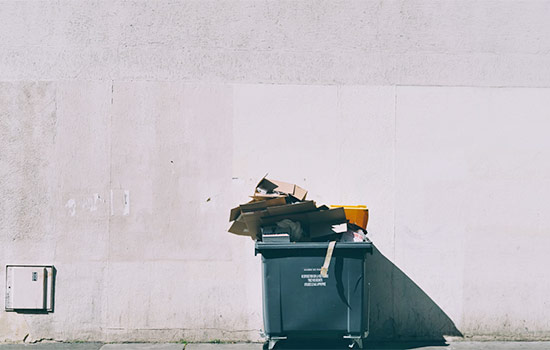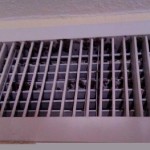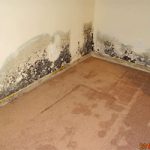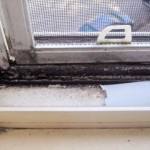There are hundreds of species of slime mold, and in any one location in the garden there can be 50 different kinds. The role of molds in nature is to break down organic matter and orange mold is one form that is commonly found in gardens where mulch is widely used. However, if left to grow uncontrollably, not only do molds look unsightly, they can also gradually damage building materials and furnishings.

In addition, they may also cause adverse health effects because of the allergens that they produce. So it’s important to keep these molds under control outside and dispose of any contaminated material carefully in order to prevent them spreading in the garden, and possibly causing more problems inside the home.
Recycling Garden Products
Mold on plastics in the garden is quite easily removed, so before throwing away contaminated furniture or kids toys, give them a good clean. Full strength white vinegar will remove mildew and keep it away for a while. Other items such as good quality artificial grass are not susceptible to mold themselves; nonetheless, they should be kept clean of organic matter or pet waste that may attract spores. Although garden plastics such as furniture, kids toys and artificial grass are hard wearing, they will eventually reach the end of their useful life. However, advances in technology mean that many more synthetic items are now recyclable, even those made of with mixed materials, so, before sending them to landfill, check to see if local services will pick them up for processing.
Disposing of Moldy Materials
If you have a shed for storage and garden materials, keeping it well ventilated, especially in winter, will prevent moisture from building up and causing black mold on the wooden walls. Anything stored in a damp shed or garage may also develop mold. Once cardboard or paper gets saturated, it becomes extremely difficult to recycle. Contamination results in tons of recyclable material being rejected each year and most recycling companies refuse to take wet cardboard. Instead, it will have to be bagged up and taken to landfill. Until it’s recycled, cardboard waste should be put in a closed-topped recycling bin stored in a clean, dry place.
Composting Infected Organic Material
Where plants in the garden become infected with mold, the affected material can be added to the compost. Here, common fungal diseases and mildews won’t survive after the material has degraded. Make sure to add fallen leaves to the compost too rather than leaving them lying around. The high humidity in a pile of organic matter creates an ideal environment for Aspergillus spores to thrive. When the pile is disturbed, the spores from the Aspergillus mold can trigger an allergic reaction and, for anyone with compromised immunity, cause more serious problems.
Molds and mildews are common in the garden and most are harmless. However, piling up household waste and garden debris and leaving it to degrade outside, can cause molds to form and spread, making the waste more difficult to dispose of. Keeping gardens and sheds clean and clear of debris ensures a safer environment.
Article by : Jennifer Fell




